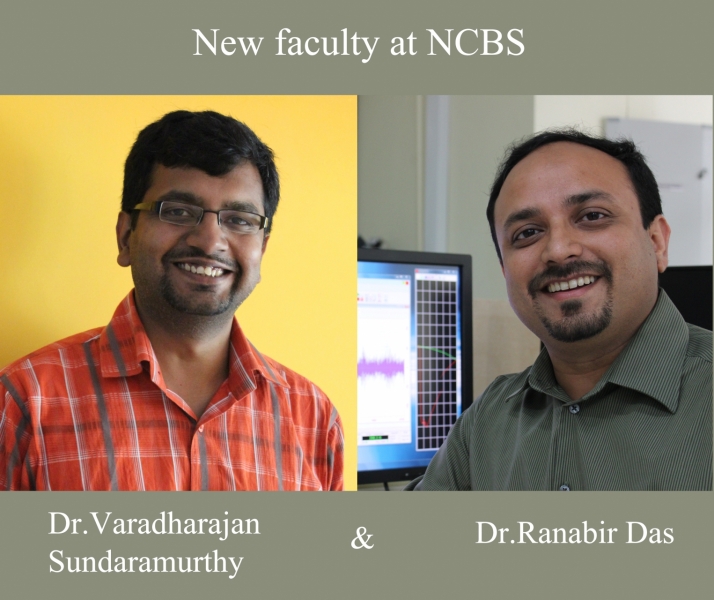NCBS is pleased to welcome two new faculty members
Ranabir Das
Ranabir Das completed his doctoral studies from the Indian Institute of Sciences, Bangalore in 2005 where he worked extensively on the methodological developments in Nuclear Magnetic Resonance (NMR) spectroscopy. During his post-doctoral research at National Cancer Institute (NCI), Ranabir Das obtained training in utilizing molecular cloning of recombinant proteins and protein NMR techniques to study the structure-dynamics function relationship of proteins. During this time, he actively contributed to collaborative projects concerning transcription elongation and the ubiquitin-guided degradation machinery. His postdoctoral research work was generously funded by postdoctoral fellowship from National Institute of Health, and, the highly competitive Director's Innovative grant by the National Cancer Institute.
At NCBS, Ranabir 's laboratory studies the assembly and recognition of ubiquitin chains with the goal to understand how these chains affect cellular processes. The laboratory employs a combination of NMR spectroscopy and various other biophysical, biochemical and computational tools to study protein structure and dynamics.
Learn more about the lab at http://www.ncbs.res.in/rana (Ranabir Das)
Varadharajan Sundaramurthy
Varadharajan Sundaramurthy did his PhD from the Indian Institute of Sciences, Bangalore. His doctoral research focused on heme biosynthesis in malarial parasite. He completed his postdoctoral training in University of Basel, Switzerland and the Max Planck Institute of Molecular Cell Biology and Genetics, Germany. During his postdoctoral research, he made significant contributions to identify the mechanisms of host-mycobacteria interface from a cell biological perspective using hypothesis based and high content screening approaches. His postdoctoral research work was supported by the competitive postdoctoral fellowship from Roche Research Foundation, Switzerland. In 2008, he was awarded the Pfizer Research prize in recognition of his contribution to the field of mycobacterial pathogenesis.
At his laboratory in NCBS, Sundaramurthy aims to understand the contours of host-pathogen interactions at multiple levels by studying the modulation of critical host pathways by intracellular pathogens, in particular, Mycobacterium and Plasmodium- the causative agents of Tuberculosis and Malaria respectively, and exploiting the potential of this knowledge for drug discovery. Towards this goal, his laboratory will employ a combination of chemical genetics, quantitative image analysis and high content screening tools together with conventional cell and molecular biological approaches.
Learn more about the lab at
http://www.ncbs.res.in/varadha (Varadharajan Sundaramurthy)

Comments
Post new comment